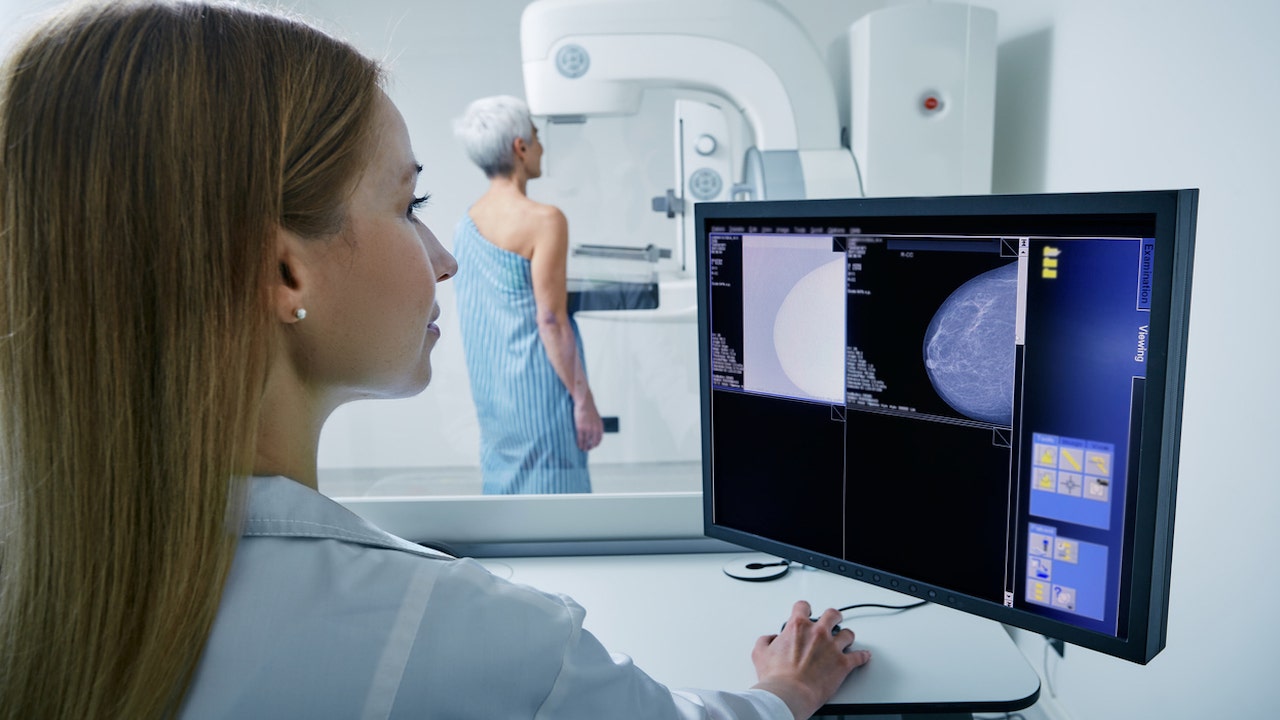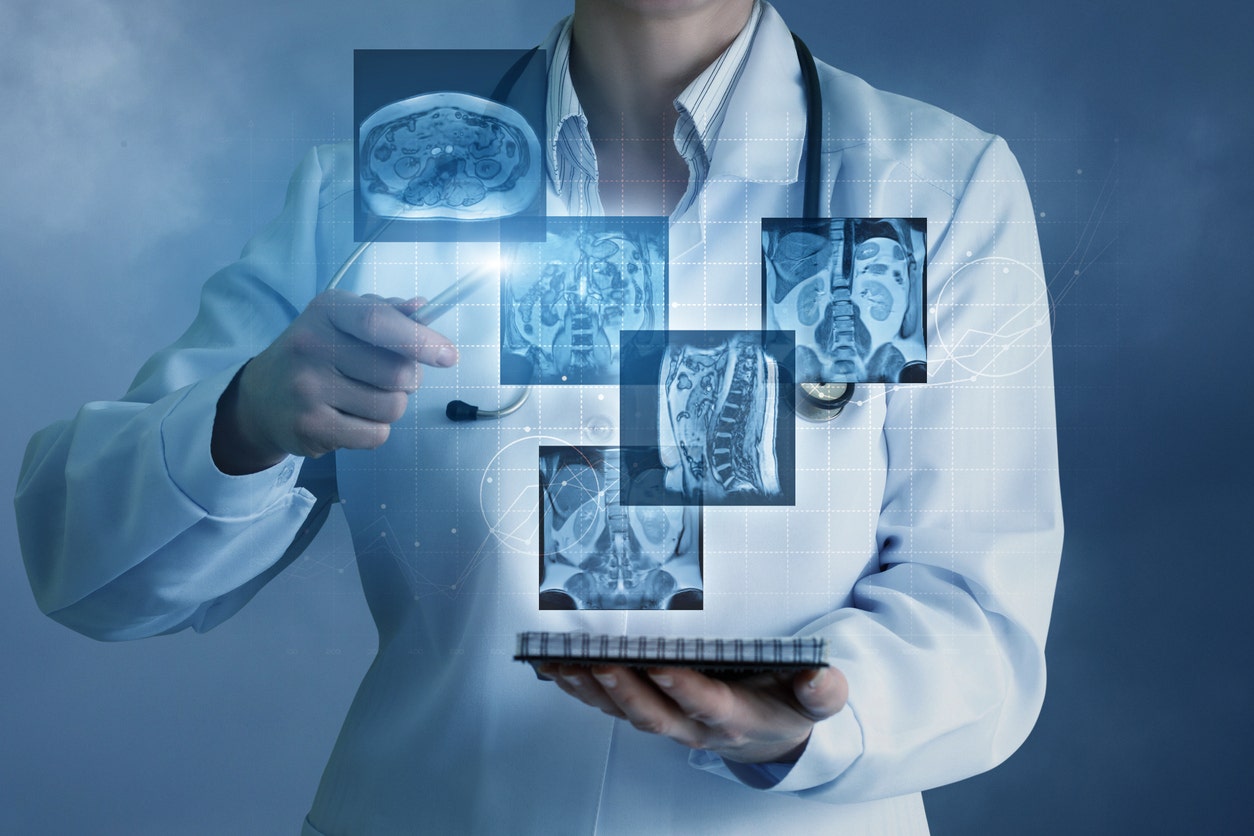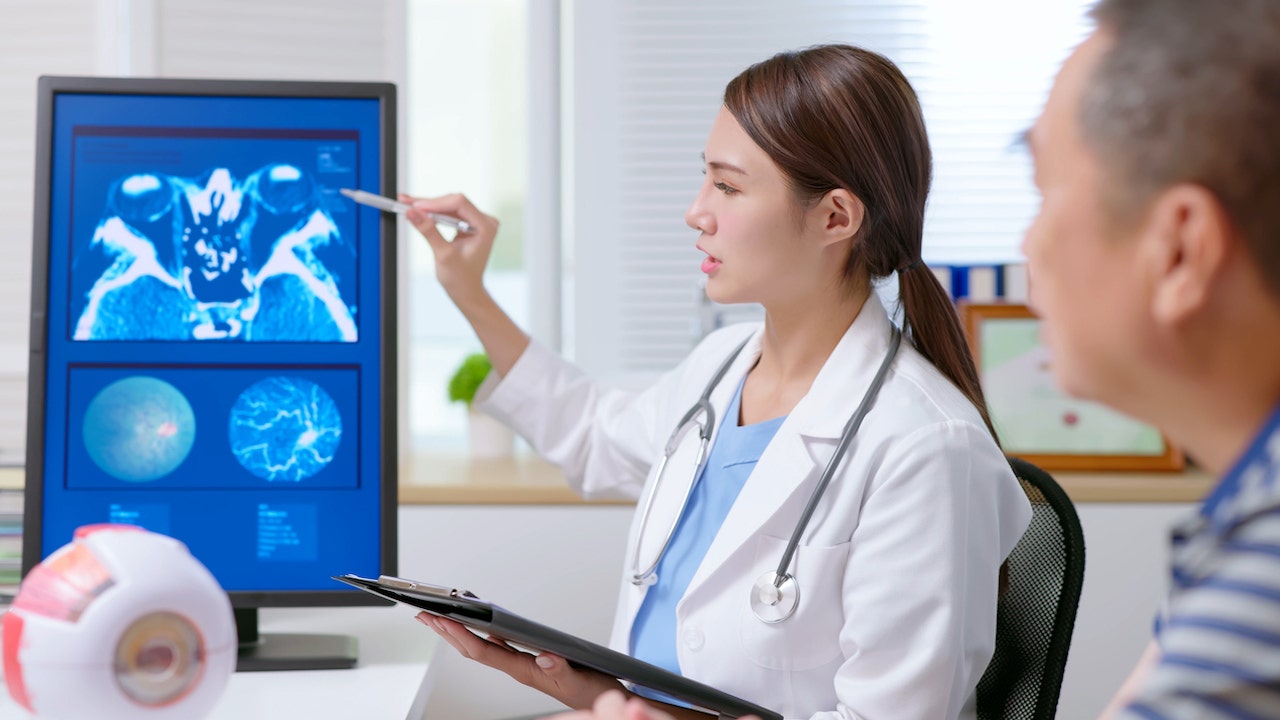Researchers in the U.K. are training artificial intelligence models to “read” mammogram images by mimicking the gaze of human radiologists, according to Hantao Liu, an associate professor at Cardiff University who is leading the initiative.
The goal is for the AI solution to improve the accuracy and efficiency of scans, thus leading to earlier detection of breast cancer and more informed decision-making.
“We worked with radiologists from hospitals in Wales and England, using an eye-tracking system to record their gazes as they read medical images,” Liu told Fox News Digital.
“This is human-centric AI.”
WHAT IS ARTIFICIAL INTELLIGENCE (AI)?
Once the AI is trained, the system theoretically will be able to identify regions where radiologists are most likely to look when making diagnoses.
The goal is not to replace the radiologists — but to enhance their diagnostic performance, the researcher explained.

U.K. researchers are training artificial intelligence models to “read” mammogram images by mimicking the gaze of human radiologists. (iStock)
“We hope this AI system can act as a ‘critical friend’ or colleague,” Lui said. “The technology is not a replacement, but a collaborative tool.”
The AI doesn’t actually make the diagnoses. Instead, it can help pinpoint which areas on a scan might look “suspicious,” he said.
The system is still in development, with a goal of deploying it across radiology departments in the U.K. in the future.
NEW AI ‘CANCER CHATBOT’ PROVIDES PATIENTS AND FAMILIES WITH 24/7 SUPPORT: ‘EMPATHETIC APPROACH’
Training and education likely will be the first application of the new AI technology, Liu said.
“We have already used it for some internal training programs,” he said. “Our goal is to develop AI-enabled training tools for junior radiologists.”
The U.K. currently has a 30% staffing shortage in radiology, so the researchers hope that the AI technology will relieve some of the burden of manual tasks, giving the medical professionals more time to focus on key decision-making work.

The goal is for the AI solution to improve the accuracy and efficiency of scans, thus leading to earlier detection of cancer and more informed decision-making. (iStock)
While the current focus is on mammograms, the team is working to extend the AI’s capability to other medical images, such as chest X-rays.
Beyond working with a team of 10 radiologists to train the AI, the researchers have also received support from Breast Test Wales, a government organization that provides a mammogram screening program in the U.K.
AI TECHNOLOGY CATCHES CANCER BEFORE SYMPTOMS WITH EZRA, A FULL-BODY MRI SCANNER
“This is just the first milestone of our work,” Liu told Fox News Digital.
“Next, we need to learn more about the specific needs of radiologists and hospitals so we can better deploy the system and adapt to different environments.”
‘Innovative development,’ but concerns remain
Dr. Harvey Castro, a Dallas, Texas-based board-certified emergency medicine physician and national speaker on artificial intelligence in health care, reviewed the details of Liu’s AI model and called it an “innovative development in the intersection of AI and health care.”
“This technology has the potential to significantly enhance the early detection of breast cancer and improve the efficiency of diagnosis,” he told Fox News Digital.
“This is human-centric AI.”
“By processing a large number of scans, AI can leave radiologists more time to focus on complex cases, potentially speeding up the diagnostic process and allowing for quicker treatment initiation.”
In terms of education and training, this technology could serve as a valuable tool for medical students and junior doctors, Castro said.

Once the AI is trained, the system will theoretically be able to identify regions where radiologists are most likely to look when making diagnoses. (iStock)
“By observing how the AI system identifies areas of concern on a scan, they could learn to mimic this approach, enhancing their diagnostic skills,” he said.
The technology, however, is not without its limitations and concerns, said Castro.
“One of the main concerns is the system’s reliance on the eye movements of radiologists,” Castro said.
“The ultimate goal is to improve patient outcomes and make health care more accessible and efficient for all.”
“This approach means the system potentially could inherit any biases or blind spots that the radiologists may have.”
“Additionally, while AI can process a large number of scans, the interpretation of these scans still requires a human touch,” he continued.
“AI can highlight areas of concern, but the final diagnosis lies with the radiologist.”
CLICK HERE TO SIGN UP FOR OUR HEALTH NEWSLETTER
“As we continue to explore the intersection of AI and health care, it’s crucial that we leverage these technologies to enhance patient care, while also addressing any potential limitations and concerns,” he said.
“The ultimate goal is to improve patient outcomes and make health care more accessible and efficient for all.”
Read More: World News | Entertainment News | Celeb News
